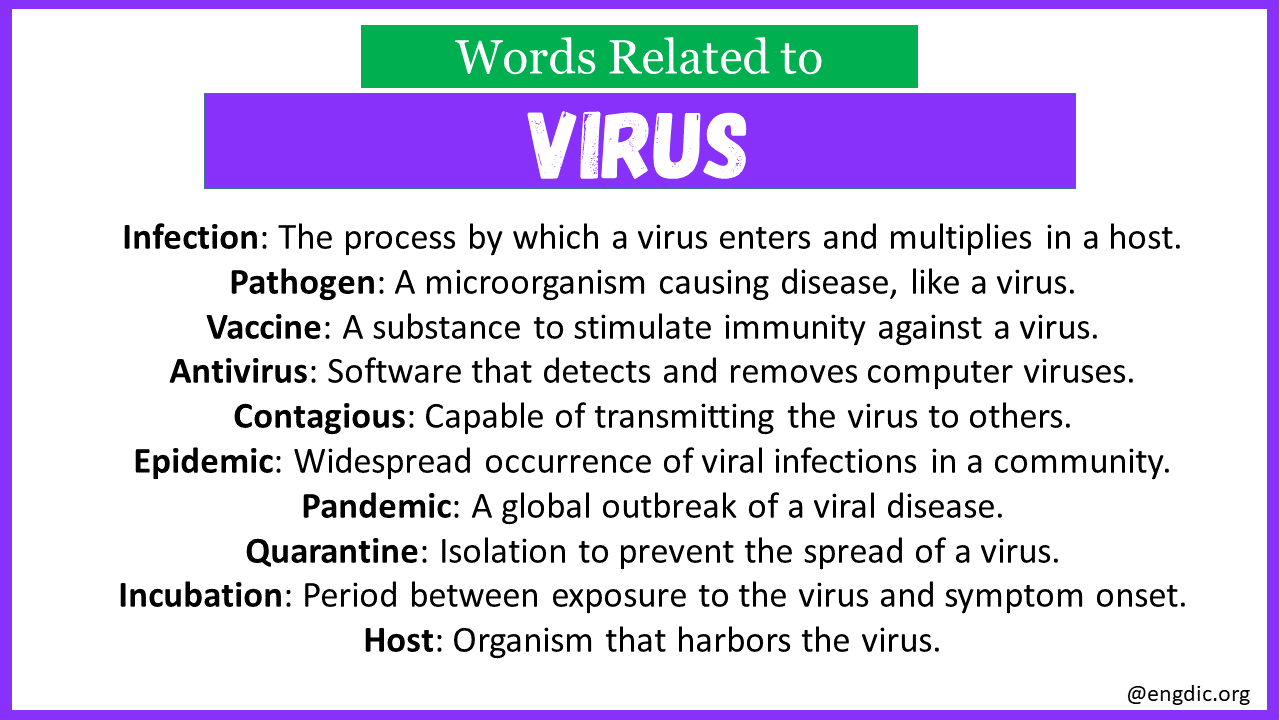A virus is a microscopic infectious agent that requires a host cell to reproduce. Viruses can cause various diseases in animals, plants, and even computers. Understanding the terminology related to viruses is essential for comprehending their function, spread, and treatment.
Words Related to Virus
Here are the top 30 terms related to virus with meanings:
- Infection: The process by which a virus enters and multiplies in a host.
- Pathogen: A microorganism causing disease, like a virus.
- Vaccine: A substance to stimulate immunity against a virus.
- Antivirus: Software that detects and removes computer viruses.
- Contagious: Capable of transmitting the virus to others.
- Epidemic: Widespread occurrence of viral infections in a community.
- Pandemic: A global outbreak of a viral disease.
- Quarantine: Isolation to prevent the spread of a virus.
- Incubation: Period between exposure to the virus and symptom onset.
- Host: Organism that harbors the virus.
- Viral Load: Amount of virus present in an infected individual.
- RNA: Genetic material in some viruses.
- DNA: Genetic material in other types of viruses.
- Transmission: The spread of the virus from one host to another.
- Symptom: Observable effect of a viral infection.
- Antibody: Protein that neutralizes or destroys viruses.
- Mutation: Change in the virus’s genetic material.
- Vector: Organism that transmits the virus.
- Outbreak: Sudden increase in the occurrence of a virus.
- Immunity: Resistance to viral infection.
- Virology: Study of viruses.
- Replication: Process by which a virus duplicates itself.
- Zoonotic: Virus transmitted from animals to humans.
- Strain: Variation of a virus.
- Carrier: Person who transmits the virus without showing symptoms.
- Latent: Virus that is dormant but can reactivate.
- Diagnosis: Identification of a viral infection.
- Prophylaxis: Measures taken to prevent viral infection.
- Endemic: Virus constantly present in a population.
- Titer: Concentration of antibodies in the blood.
Explore More Words:







